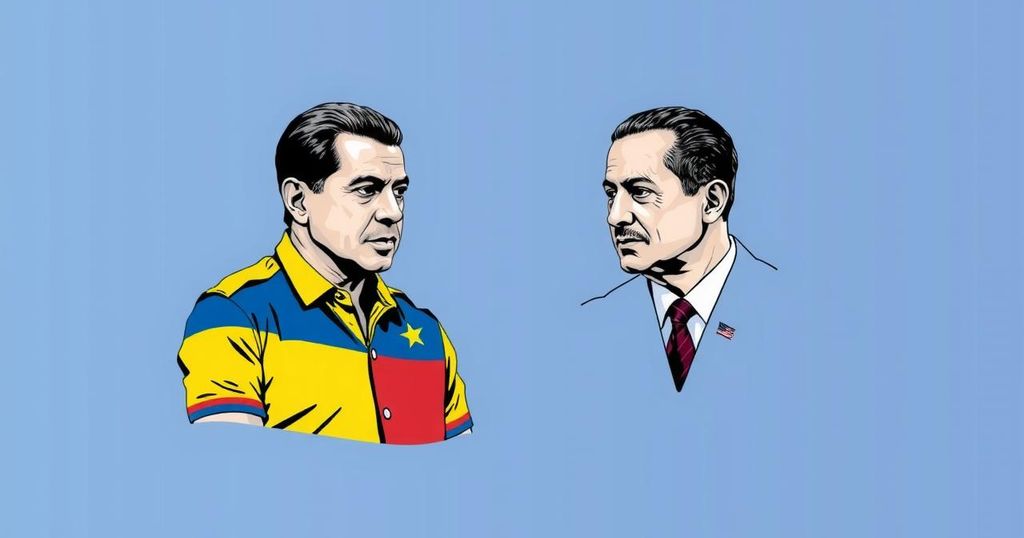U.S. Imposes Sanctions on Venezuelan Officials Over Election Repression

The U.S. has sanctioned 21 Venezuelan officials for suppressing protests post-election, where at least 25 deaths occurred. The sanctions target security and cabinet officials involved in repression and alleged electoral fraud following Maduro’s controversial victory. The Biden administration has recognized opposition leader Gonzalez as Venezuela’s legitimate president, adding to Maduro’s diplomatic isolation.
The United States has imposed sanctions on 21 individuals affiliated with Venezuelan President Nicolás Maduro, citing their roles in the suppression of protests following a contentious presidential election. The sanctions were announced by officials at the U.S. Department of the Treasury, who highlighted the severe crackdown that left at least 25 protesters dead and over 2,400 arrested. The sanctions aim to target members of the security forces and cabinet-level officials who have undermined a fair electoral process and engaged in widespread human rights abuses.
The Venezuelan political landscape has become increasingly fraught following the July 28 presidential election, which President Maduro claimed to have won despite significant allegations of electoral fraud. The opposition, led by Edmundo Gonzalez, has denounced the election outcome and has provided evidence they claim demonstrates Gonzalez’s victory. International observers and organizations, including The Carter Center, have expressed concerns regarding the integrity of the electoral process. The recent sanctions signify continued U.S. disapproval of Maduro’s administration and the handling of dissent in Venezuela.
The recent sanctions impose additional pressure on Maduro’s government amid increasing diplomatic isolation and allegations of electoral fraud. With the U.S. recognizing opposition leader Edmundo Gonzalez as the legitimate president, it remains to be seen how these developments will influence the political climate in Venezuela. The ongoing repression of dissent and the rise of international scrutiny may also have broader implications for regional stability.
Original Source: www.aljazeera.com







